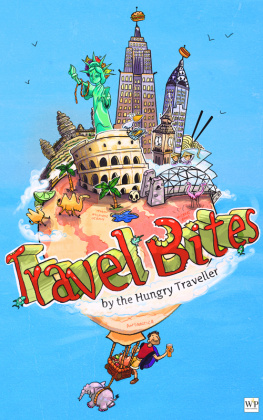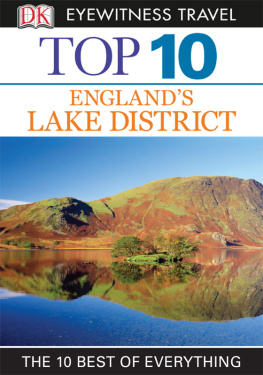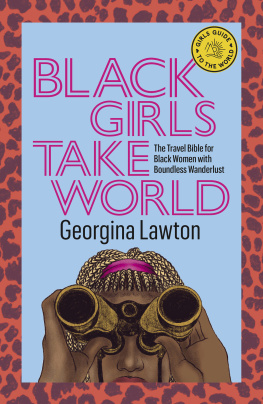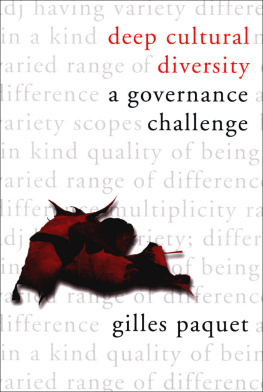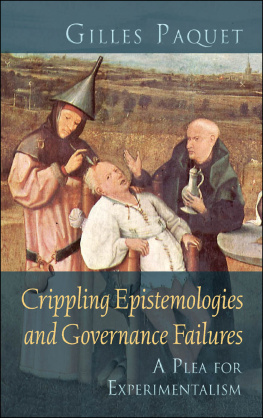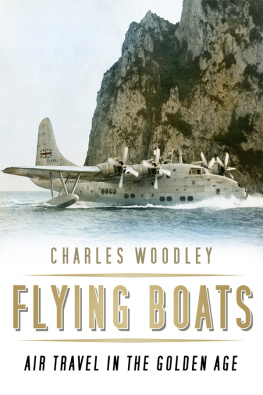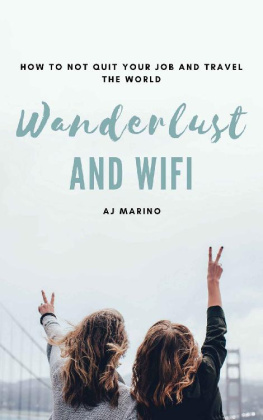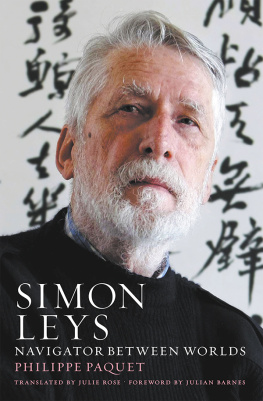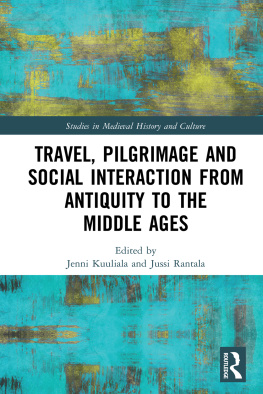WANDERLUST
Other Books by LAURA BYRNE PAQUET
Non-Fiction:
The Urge to Splurge: A Social History of Shopping (2003)
Secret Ottawa (2000)
Write Better, Right Now, as co-author (1997)
Fiction:
The Incomparable Cassandra (2004)
An Honorable Match (2004)
A Rakish Spy (2004)
Lord Hawksmoor Takes Flight (2004)
Trusting Lady Lucy (2003)
Mr. McAllister Sets His Cap (2003)
Miss Scott Meets Her Match (2002)
Lord Langdons Tutor (2000)
Wanderlust
a social history of travel
LAURA BYRNE PAQUET

Copyright 2007 by Laura Byrne Paquet.
All rights reserved. No part of this work may be reproduced or used in any form or by any means, electronic or mechanical, including photocopying, recording, or any retrieval system, without the prior written permission of the publisher or a licence from the Canadian Copyright Licensing Agency (Access Copyright). To contact access Copyright, visit www.accesscopyright.ca or call 1-800-893-5777.
Cover images: Directions? Shoutforhumanity, Dreamstime (top);
Pura Ulun Danu, Bali, Indonesia, Brand X Pictures (bottom).
Cover and interior page design by Julie Scriver.
Printed in Canada.
10 9 8 7 6 5 4 3 2 1
Library and Archives Canada Cataloguing in Publication
Paquet, Laura Byrne, 1965
Wanderlust: a social history of travel / Laura Byrne Paquet.
Includes bibliographical references and index.
ISBN 978-0-86492-445-2 (pbk.)
1. Travel Social aspects. 2. Travel History. I. Title.
G156.P36 2007 306.4 819 C2007-900469-5
Goose Lane Editions acknowledges the financial support of the Canada Council for the Arts, the Government of Canada through the Book Publishing Industry Development Program (BPIDP), and the New Brunswick Department of Wellness, Culture and Sport for its publishing activities.
Goose Lane Editions
Suite 330, 500 Beaverbrook Court
Fredericton, New Brunswick
CANADA E3B 5X4
www.gooselane.com
Acknowledgments
Id like to thank some wonderful people without whom this book would never have been published: my agent Robert Lecker, who never stopped believing that the proposal would sell; Laurel Boone of Goose Lane Editions, who took a brave leap of faith in signing a new-to-her author; all the staff at Goose Lane Editions, who skilfully shepherded me through the publication process with ceaseless good cheer and understanding; editor Barry Norris, who tightened up my windy sentences and checked multitudinous facts with an eagle eye; my family and friends, who lent me books, sent me encouraging e-mails, put up with my grizzling and just generally kept me going; and, especially, my ever-patient husband Paul, who revised the drafts multiple times, brought me endless mini Kit Kats and never once suggested that we both would have been better off if Id just taken up a career in something simple, like nuclear physics.
Laura Byrne Paquet
Ottawa, Ontario
January 2007
Why Leave Home?
If a man take no thought about what is distant, he will find sorrow near at home.
Confucius
At first glance, travel especially leisure travel seems like one of the most incomprehensible and ridiculous activities we humans undertake.
Here in the West at the dawn of the twenty-first century, many of us slave at jobs to pay mortgages on houses that we decorate with infinite care. We weave patterns of cozy habit, where we feel safe among old friends and familiar streets. We put all sorts of effort into creating lives that suit us to a T. And then, many of us cant wait to escape this meticulously crafted, eminently comfortable environment, to hurl ourselves onto cramped airplanes that will take us to impersonal airports where well get into cabs with drivers whose language we do not speak, who will take us through streets whose names mean nothing to us, to a hotel room that may be lovely but may just as easily overlook a Dumpster that will emptied each morning at 3:52 AM.
We will spend the next days or weeks giving undue thought to the foods we will eat and the clothes we will wear and the things we will do, when at home all those decisions would be simple.
We will worry about purse snatchers, dysentery, late flights, lost passports, altitude sickness, dodgy Internet connections and deep vein thrombosis, when at home none of these things would ever cross our minds.
At the end of the trip, once weve checked out of the hotel and gone back to the anonymous airport and eaten more mysterious airline food and waited forty-five minutes for our bags to turn up at the carousel and fought our way through insane traffic, we finally put the key in the front door, walk in and sigh, Its good to be home.
So why do we ever leave in the first place?
For the same reasons travellers have been hitting the road since we first hauled ourselves upright onto two feet. To find things to eat. To do business. To relax. To seek truth. To test ourselves. To learn. To escape. To come back.
Many of the epics that form our cultural foundations are stories of people moving from place to place in pursuit of some higher goal, whether its Rama trying to rescue his wife Sita from a far-off island in the Ramayana, Jason and the Argonauts sailing off in search of the Golden Fleece or Moses leading the Israelites out of Egypt and into the Promised Land.
Stories of travel as transformation pop up in culture high and low across the centuries. A tentmaker named Saul was on the road to Damascus sometime around AD 36 when a flash of bright light and the voice of Jesus inspired his conversion to Christianity. The Quran describes a miraculous one-night journey by Muhammad from Mecca to Jerusalem and heaven that would shape the future of Islam. The medieval knights of King Arthurs Round Table met their fiercest tests after setting out from Camelot on the quest for the Holy Grail. The knights deluded literary descendant, Don Quixote, journeyed from exuberant madness to melancholy sanity via an eventful trip across the Spanish plains in Miguel de Cervantes 1605 novel. Seven decades later, an everyman named Christian made an allegorical pilgrimage from the City of Destruction to the Celestial City in John Bunyans Pilgrims Progress, while in 1749 a decidedly earthier English hero wended his debauched way across the countryside in Henry Fieldings Tom Jones. Mark Twain picked up the thread of travel as transformation when he put Huck Finn and Jim in a boat and set them off along the Mississippi River in 1884. Ernest Hemingway inspired the Lost Generation, restless after the upheaval of the First World War, to discover themselves in France and Spain with The Sun Also Rises. In the wake of the Second World War, Jack Kerouac would similarly encourage the Beat Generation to discover their own country in On the Road.
Influential as these books have been, the influence of movies has surpassed the cultural clout of books over the past half-century or so. But even here, the power of travel as a metaphor for personal growth and adventure and escape is unabated.
Its no coincidence that the first of the seven Bob HopeBing Crosby Road movies, The Road to Singapore, came out in 1940, just as the world was leaving the Depression behind and catapulting into the Second World War. Even as the foreign newsreels were showing the dark, dangerous side of foreign locales, Bing, Bob, and Dorothy Lamour were cavorting through silly, sunshine-filled capers in deserts and on tropical islands.
Next page

